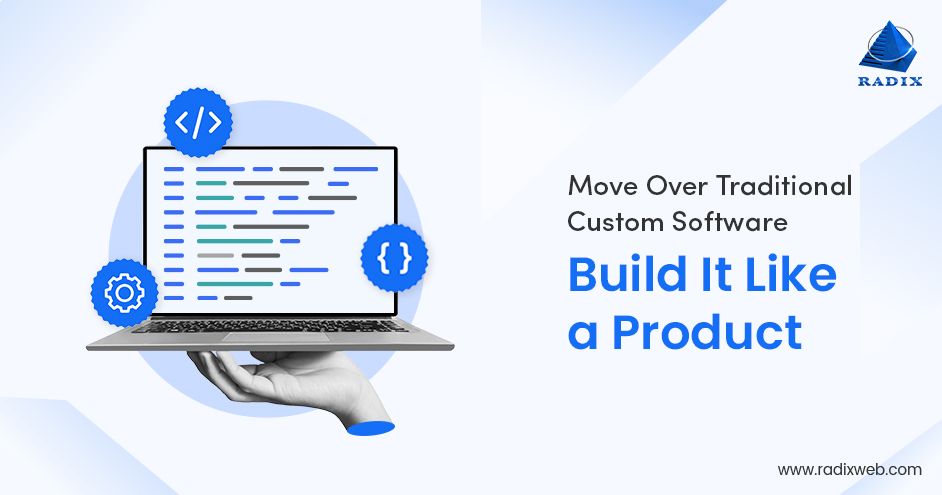
Discover what’s next for AI in healthcare in 2026 - Get Access to the Full Report
DevOps vs SRE to Drive Better Tech Adoption


DevOps versus SRE is actually not a comparison question because you cannot opt for one over the other. The DevOps team answers the question of how to solve a problem, while the Site Reliability Engineering (SRE) team answers the question of how to deploy, run, and maintain the solution of that problem.
They do have differences but as a matter of fact, Site Reliability Engineering (SRE) is a crucial component of DevOps. And an effectively implemented DevOps method essentially requires SRE at the time of application deployment.
Yes, it takes two to tango. DevOps and SRE are essential for a streamlined, collaborated, and robust development environment.
This blog is a walk-through to figure out what makes sense in your enterprise with the implementation of DevOps as well as SRE. The answer will definitely surprise you with the importance of business implications through DevOps and SRE.
On This Page
With the escalated challenges and complexities in application development, organizations are highly adopting scalable and reliable software development methodologies. Most importantly, DevOps vs SRE are two approaches to make the application development lifecycle robust and optimized. As both the development concepts utilize collaboration and automation to gain resilience in software development, these concepts do have fundamental differences. Let's dive into the DevOps and SRE differences.
Difference Between DevOps and SRE
DevOps is a development methodology or a development mindset. This approach highlights a seamless DevOps integration in software development and operations management. DevOps is essential to ensure everyone from every team involved in development and operations stays on the same page for app development projects.
SRE helps in automating all the difficult development tasks and ensures that the development lifecycle is authenticated and does not go down.
Core Development vs Core Implementation

One of the biggest differences between DevOps and SRE is that DevOps aims at core development. The developers work at the core of application development involving the design, build, and testing processes, while SRE does not work on the core developments but focuses on the implementation of the core development. It’s about the deployments where the SRE team constantly gives authentic feedback to the DevOps team to highlight ‘hey! Something designed by your team is not working how it is planned.’ SRE group helps the DevOps group to break down the development silos.
Another important difference between Site Reliability Engineer and DevOps should not be missed out. DevOps is more theoretical while SRE is more practical. Ideally, Both the teams need to well collaborate with each other every day for a smooth development workflow because SRE should log all the defects and tickets back with the DevOps team. But in the end, both the DevOps and SRE have the same goals. Both teams should never be opted for or replaced by the other.
Failure Mitigation vs Monitor Failures
Failure is just a mere way of life. No matter what and why you deployed an application or how well it goes. Failures are meant to happen. Everyone involved in the app development project needs to understand that at some level in the development process there is going to be a budget failure, errors, technique-failures, or any kind of project failure. What happens when a failure occurs decides how well your development solution is actually working.
The SRE team records everything, monitors, and logs every failure before it occurs. SRE is backed by advanced predictive analytics that highlights ‘Hey! This is going to break the process or this is the thing going to go worse than what we have planned.’ So SRE engineering helps solve some of these failures through the capabilities of monitoring and logging. SRE framework also hands every ‘post failure incident management' action. It inches your app through the failure incident and then hot washes failures when resolved. SRE team leads that RCA (Root Cause Analysis).
SRE sends these RCA data to the DevOps team and gets some development tickets open to solve the core problems. No doubt some of the RCA are directly solved by SRE team but some of the issues or failures can only be resolved by the DevOps team. The development team pulls those failure resolutions together and gets a new feature/ solution rolled out and passes that new feature back to the SRE team saying- ‘Hey! We got a new solution/feature for the problem you discovered.’
The SRE experts then integrate this new feature into their efforts of monitoring and logging to avoid another RCA with the same failure.
Indeed, DevOps vs SRE are part and parcel of the same bunch.
Want to Leverage High Velocity of Application Delivery and Operations Efficiency?
Gain Value with DevOps
Skill Sets
One of the core distinctions between SRE vs Software engineers is the skill set variations. DevOps experts really love writing code. While SRE developers are more of an investigating mindset, analyzing the bugs or failures or discovering what things might go wrong and embrace core automations.
Automation
DevOps automates deployment process, features, or tasks, while the SRE team automates the manual tasks into programmatic tasks and automates redundancy to raise the stack.
Here, the right question to raise should be how to build a strong DevOps team and how to build a strong SRE team and integrate each other. Both of these development philosophies are hardcore components to develop as well as maintain applications or systems. Don't believe it? Scroll into the most curious data!
Explore Some More DevOps SRE Differentiations
Speed ride into the basic and common points about what is difference between SRE and DevOps?
- The primary difference between DevOps vs SRE is focus. DevOps focuses on bridging the gap between development and operations teams to improve collaboration, whereas SRE focuses on ensuring the reliability and uptime of complex systems.
- The difference between DevOps and SRE is that DevOps emphasizes the entire software development process, while SRE narrowly focuses on the system’s reliability, scalability, and availability.
- DevOps is one type of software development methodology, while SRE is an actual job that usually implements DevOps practices.
- In terms of responsibility, DevOps teams are responsible for building and deploying features. SRE teams, on the other hand, ensure that these features don’t compromise system stability.
- SRE provides a culture of reliability, focusing on engineering solutions to operational problems and shared ownership of production systems, while DevOps promotes a collaborative culture and breaks down silos between development and operations.
- Talking about the difference between SRE vs DevOps, SRE is a specific engineering role and job, whereas DevOps is a cultural shift.
Let’s understand those differences in tabular format.
| Points | DevOps | SRE |
|---|---|---|
| Definition | DevOps is a development approach to the fastest application development through agile and lean principles | Site Reliability Engineering is a combination of operations, software engineering best practices, and software development lifecycle |
| Focus | DevOps is highly focused on fast-paced development and delivery along with its continuity | SRE is highly focused on improving system reliability and availability |
| Technology | It is based on breaking silos of the development and operations team, accepting failure requests, gradual change adoption, and leveraging automation, and DevOps tools | Build highly reliable and authentic context for supporting production systems, totally metrics-based to determine the new change or feature that solves the failure, and handles support escalation problems |
| Best Practices |
| |
| Team Structure | Software developers, QA experts, and app testers | Site reliability engineers with excellence in development and operations |
| Benefits |
|
|
How SRE Supports DevOps?
Mitigating organizational silos through seamless collaboration and uniformity in the sense that every team uses the same codebase, tools, techniques, and development support.
Bringing a gradual change is possible when SRE supports in enabling constant improvements in the development lifecycle through CI/CD tools, microservices, and continuous testing.
Tackling failure as normal is the SRE-benefit driven through considering failures or RCA as an inevitable occurrence. Site reliability engineering is more about enforcing a strong error management system.
Why Not Collaborate Better for Modern Development Approaches with Our Azure DevOps Services?
Take a Leap
The best use of tools and automation is the SRE way to enhance service delivery and workflows. SRE ensures the high accessibility of new and updated automation tools and technologies. It also embraces the key benefits of DevOps architecture.
Measuring everything is possible with SRE. It’s the core forte of the SRE team to continuously monitor and log development systems in turn ensuring the development process runs as per the set plan.
Abstracts of DevOps and SRE
With SRE technology and tooling complementing DevOps practices and principles, SRE largely automates ITOps functions. It includes disaster response, strong monitoring, and capacity planning.
On the flip, the DevOps model ensures robust delivery of digital products through collaboration of the development and operations teams. The end goal of both SRE and DevOps is to improve end-to-end lifecycle of the IT ecosystem through core of software lifecycle management.
To leverage SRE DevOps benefits, you need to partner with a top IT company delivering DevOps services for end-to-end automation. And Radixweb is a DevOps consulting company fetching 25+ years of automating the continuous delivery for software applications. In order to hire the best capabilities in developing optimized software architecture, DevOps experts at Radixweb smartly offers:
- Enhanced build quality
- Reduced development cost
- App security from the start
- Accelerated time-to-market
- Rapid adoption of market changes
- Improved app reliability
- Upscaled team collaboration
- Augmented app delivery
So, wait no more to hire DevOps engineers and make your business innovation-led and future-ready with our DevOps services.
Ready to brush up on something new? We've got more to read right this way.





